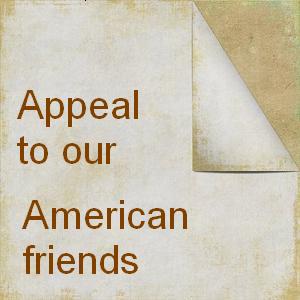After many letters and three overseas visits to bring violent attacks on Afrikaner farmers to the attention of the international community, PRAAG welcomes the imminent visit of a UN delegation to investigate the possibility of genocide in South Africa.
The Pro-Afrikaans Action Group's leader, Dr. Dan Roodt, said: "The announcement by Mr. Castro Wesamba that the United Nations is sending an expert delegation to investigate farm murders and other forms of ethnic violence in our country shows that the international community has not forgotten us. But it had also been necessary for PRAAG and an anonymous farmer from Rustenburg to wage an international campaign around the issue before we got the necessary response."
Within the context of the Malema trial currently taking place in the Johannesburg High Court, South Africa finds itself already, according to Roodt, "in the midst of what the United Nations has been calling in their most recent terminology an identity conflict. For considerable time now, we have been maitaining that the level of violence, dehumanisation, hate speech and open incitement to ethnic conflict and even genocide is not normal, not at all. However, the South African public and Afrikaners in particular have been conditioned to accept these extreme conditions as normal with some attempting to protect themselves against these by means of ad hoc and individual measures."
PRAAG is planning to step up its communication with the UN, as well as the American and other foreign governments in the run-up to the UN visit. "We feel that there should be a national and international debate and concern about the identity conflict in South Africa. We blame the South African media and academics for not addressing the issue with greater insight and seriousness. Thousands of murders and tens of thousands of attacks could have been prevented."
Roodt was also of the opinion that "the duty of every government to protect its citizens, which is also a principle of international law, is not being applied in our country. We should demand the right to protection. Otherwise, there should be tax incentives and funding for more private security, if the state and the police cannot perform its duties."
PRAAG welcomes UN investigation into Afrikaner genocide
Race & ethnicity news
Latest
- Bogus metro police officers hijack vehicles in industrial area
- Harris County sheriff vows to fix racism issues
- 'Apartheid' ad ires Jews
- Another political murder in Natal?
- Strikes may interrupt petrol and medicine supplies
- World population nearing 7 billion
- Afrikaner independence to follow South Sudan's?
- 12 dead in blasts at Cyprus naval base
- Murdoch fighting to keep BSkyB bid amid hacking scandal
- A look at the history, people of South Sudan
Popular
- Rise of the Left spells disaster for South Africa
- Vote white, vote VF+
- Were South African Blacks ever cannibals?
- Land grab 'could happen in South Africa' - minister
- The WaBenzi
- Afrikaner independence to follow South Sudan's?
- Dan Roodt loses libel suit against 'racist' charge
- SA governance 'the worst' - report
- 'Apartheid made all whites racist' - Malema
- Racial violence has not made it into the conversation about race
Other
- 12 dead in blasts at Cyprus naval base
- FFPlus Wants Probe Into Anthem 'Censoring'
- ATMs Across SA Could Be Fitted With Pepper Spray
- Dbn Man Shot While Helping Neighbour
- Quotes Of The Week
- Tshwaing Minicipality Uses Pool Chlorine For Water Purification
- Penis Case Suspects On Trial In July
- Heat Forces Ecape Residents Indoors
- AIDS Threatens African Governments: Study
- Back Pain Costs Employees R1.2 Billion A Year






